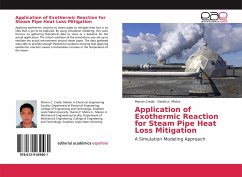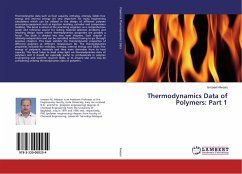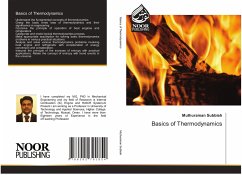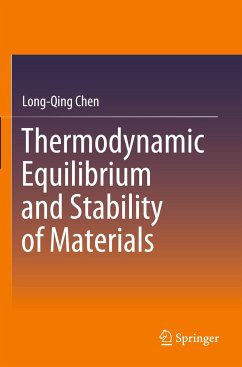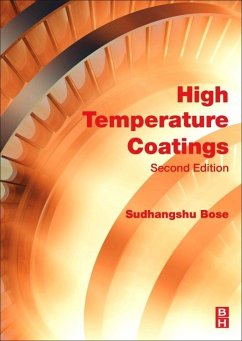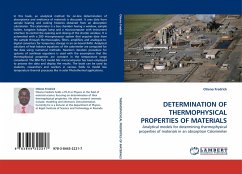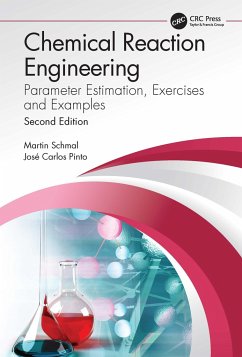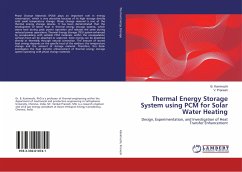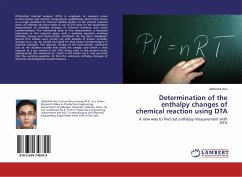
Determination of the enthalpy changes of chemical reaction using DTA
A new way to find out enthalpy measurement with DTA
Versandkostenfrei!
Versandfertig in 6-10 Tagen
27,99 €
inkl. MwSt.

PAYBACK Punkte
14 °P sammeln!
Differential thermal analyzer (DTA) is employed to measure phase transformation and reaction temperatures qualitatively, which often serves as a rough guideline for thermal stability studies. In the present research work, an attempt has been made to use of DTA data for the quantitative measurement of enthalpy changes of chemical reactions and phase transformations. The theoretical basis of this measurement is discussed extensively in this research paper and a working equation involving enthalpy change and heat-transfer coefficient S has been developed. Various DTA studies were carried out with...
Differential thermal analyzer (DTA) is employed to measure phase transformation and reaction temperatures qualitatively, which often serves as a rough guideline for thermal stability studies. In the present research work, an attempt has been made to use of DTA data for the quantitative measurement of enthalpy changes of chemical reactions and phase transformations. The theoretical basis of this measurement is discussed extensively in this research paper and a working equation involving enthalpy change and heat-transfer coefficient S has been developed. Various DTA studies were carried out with samples of known enthalpy changes (e.g., Ag, Al, CaCO3 and NaCl) for their phase transformations or chemical reactions. This allowed, finding of the heat-transfer coefficient ( S) of the alumina crucible that holds the sample, and which is then exposed to a gas stream in the DTA set-up used in the present study. Subsequently, the measured S, which is 241 kcal/hr m2 K, was put back into the working equation to find the unknown enthalpy changes of chemical reactions/phase transformations.



